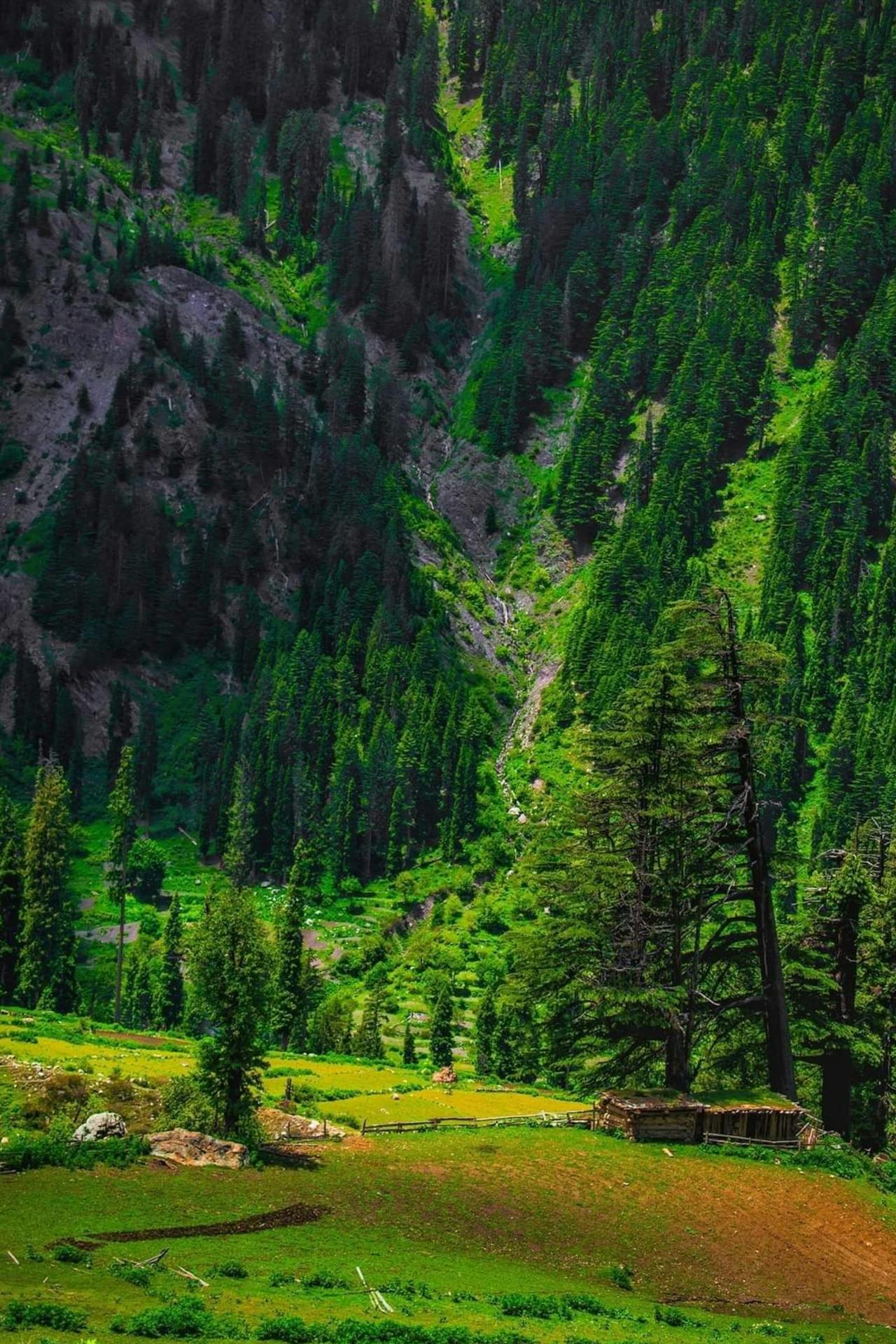Introduction
If you’re looking for sustainable travel destinations, then you’re on the right track. In this post, we’re covering the Top 10 Sustainable Travel Destinations in Pakistan You Must Visit—locations where eco-conscious exploration meets natural beauty and cultural richness. Pakistan is blessed with stunning landscapes, from towering mountains and lush valleys to serene lakes and ancient villages. What makes these destinations truly special is their growing focus on sustainability—offering travelers a chance to explore responsibly while supporting local communities and preserving the environment. Whether you’re an environmentally aware traveler or someone simply looking to experience the untouched beauty of Pakistan in a meaningful way, this guide will help you discover places where your journey leaves a positive footprint. Let’s dive into the top eco-friendly travel spots across the country that promise unforgettable experiences with purpose.
Table of Contents
What Makes Sustainable Travel Important?
In recent years, the tourism industry has experienced a significant shift as more travelers recognize the importance of sustainability. Sustainable travel isn’t just a passing trend; it’s an essential practice that helps protect the planet, preserve natural resources, and support local communities. As the world grapples with the environmental challenges posed by over-tourism and climate change, sustainable travel has become a key component of responsible tourism.
So, why is sustainable travel so important? Let’s explore the critical reasons why adopting eco-friendly travel practices matters.
1. Protecting the Environment
One of the primary reasons sustainable travel is so important is because it helps protect the environment. The tourism industry can have significant environmental impacts, from carbon emissions caused by transportation to plastic waste generated by travelers. Sustainable travel practices, such as choosing eco-friendly transportation options, minimizing plastic usage, and supporting destinations that prioritize conservation, can significantly reduce a tourist’s carbon footprint and environmental impact.

For instance, traveling by train or bus instead of flying, or using public transportation within cities, helps reduce CO2 emissions. Additionally, travelers who stay in eco-lodges or resorts that use renewable energy sources help reduce the energy consumption that contributes to climate change.
2. Preserving Biodiversity and Wildlife
Sustainable travel plays a crucial role in protecting the world’s biodiversity and wildlife. Many of the world’s most precious species and ecosystems are under threat due to human activities, including deforestation, habitat destruction, and over-hunting. By choosing to visit destinations that promote sustainable practices, travelers can contribute to the preservation of these natural habitats and support conservation efforts.
Eco-friendly tourism initiatives often include wildlife conservation programs, which aim to protect endangered species and preserve their natural habitats. For example, travelers who visit wildlife reserves or eco-tourism parks can directly contribute to the protection and sustainability of these areas by paying entrance fees or supporting conservation programs.
3. Supporting Local Communities
Sustainable travel not only benefits the environment but also supports local communities economically and culturally. When travelers choose eco-friendly destinations and participate in responsible tourism practices, they contribute to the local economy in a way that promotes long-term sustainability.
For example, eco-tourism encourages travelers to stay at locally owned businesses, eat at local restaurants, and purchase handmade goods from local artisans. This helps keep the economy within the community, ensuring that the benefits of tourism are felt by the people who live there. Additionally, sustainable tourism often fosters cultural exchange, allowing travelers to learn from and support local traditions and lifestyles.
4. Promoting Responsible Consumption and Waste Management
Sustainable travel encourages tourists to be mindful of their consumption and waste habits. By adopting responsible travel practices, travelers can minimize the waste they produce, reduce their use of single-use plastics, and avoid over-consuming resources like water and energy.
For instance, using refillable water bottles, carrying reusable shopping bags, and choosing eco-friendly toiletries can help reduce waste during your travels. Additionally, staying in eco-friendly accommodations that have waste segregation and recycling programs can make a big difference in reducing the overall environmental impact of tourism.
5. Reducing Over-Tourism and Pressure on Sensitive Ecosystems
Over-tourism has become a growing concern in popular travel destinations around the world. The pressure from large numbers of tourists can lead to the degradation of local ecosystems, overcrowding, and the destruction of cultural heritage sites. Sustainable travel helps mitigate these issues by encouraging tourists to visit lesser-known destinations, which are often better equipped to handle tourism without compromising their environment or infrastructure.
By spreading tourism across a wider variety of locations and avoiding overcrowded hotspots, travelers can contribute to reducing the negative impacts of over-tourism. This not only helps preserve the integrity of sensitive ecosystems but also offers travelers a more authentic and unique experience.
6. Contributing to Climate Change Mitigation
Travel, particularly air travel, is a significant contributor to global carbon emissions. However, sustainable travel provides an opportunity to offset these emissions through conscious decisions that reduce the impact of our travels. For example, choosing to travel by rail instead of flying, staying in energy-efficient accommodations, or offsetting your carbon footprint through environmental initiatives can help minimize the overall climate impact of your trip.
Some travel companies even offer carbon-offset programs, allowing you to invest in projects that focus on reducing greenhouse gas emissions, such as reforestation or renewable energy projects. By participating in such programs, you can contribute directly to mitigating climate change and promoting a more sustainable future.
7. Enhancing Personal Fulfillment
Sustainable travel is not only good for the planet but also good for the traveler. Many people find that their travels take on more meaning when they are supporting environmentally and socially responsible practices. Traveling with a conscience allows individuals to align their values with their actions, contributing to a sense of fulfillment and purpose.
Moreover, sustainable travel often brings people closer to nature and offers more immersive, authentic experiences. Whether it’s hiking through untouched forests, learning about local traditions, or staying in eco-friendly accommodations, sustainable travel allows travelers to engage in meaningful interactions with nature and communities, leaving them with lasting memories and a sense of personal accomplishment.
1. Hunza Valley: A Green Paradise
Why Visit Hunza?
Nestled in the heart of Gilgit-Baltistan, Hunza Valley is often considered a hidden gem in the northern regions of Pakistan. This breathtaking destination is known for its pristine landscapes, towering snow-capped peaks, clear turquoise lakes, and fertile terraces. The locals of Hunza have worked hard to maintain the area’s ecological integrity, promoting eco-tourism practices that conserve the valley’s natural beauty. Whether you’re a nature enthusiast, photographer, or adventure seeker, Hunza promises an unforgettable experience.

Sustainability Efforts
- Eco-Friendly Accommodations: Many of the guesthouses and hotels in Hunza are built using locally sourced materials such as stone, mud, and wood, helping to reduce the carbon footprint. These accommodations prioritize solar energy and sustainable water use.
- Community-Based Tourism: The local community plays a significant role in tourism by offering homestays. This allows travelers to immerse themselves in local life and ensures that tourism revenues benefit the residents directly, promoting sustainable economic development.
- Conservation Initiatives: Hunza is home to several conservation efforts, such as tree planting programs, waste management systems, and awareness campaigns to protect the natural environment. Local organizations also actively promote sustainable practices to protect the region’s diverse flora and fauna.
2. Skardu: Nature at Its Best
Why Visit Skardu?
Skardu, located in the northern part of Pakistan, is a captivating destination surrounded by some of the highest peaks in the world, including K2. The mesmerizing beauty of the region includes pristine lakes, lush valleys, and untouched landscapes, making it an ideal destination for eco-tourists seeking peace and serenity. Skardu offers an opportunity to experience nature in its purest form, free from the hustle and bustle of urban life. Its commitment to preserving the environment while encouraging responsible tourism has earned it a place among Pakistan’s top eco-tourism destinations.
Sustainability Efforts
- Eco-Lodging Options: Skardu offers a wide range of eco-friendly accommodations, including resorts and guesthouses that prioritize sustainability. These establishments use renewable energy, such as solar power, and reduce water wastage through efficient practices.
- Conservation Projects: Local authorities and non-governmental organizations are working on conservation projects to protect the delicate ecosystem in and around Skardu. These include initiatives aimed at reducing the impact of waste, protecting wildlife, and educating visitors on responsible travel practices.
- Sustainable Trekking Practices: Trekking is one of the most popular activities in Skardu, and many guides and operators follow sustainable trekking principles. This includes the “Leave No Trace” philosophy, where trekkers are encouraged to carry out their waste and respect the natural environment.
3. Swat Valley: The Switzerland of Pakistan
Why Visit Swat?
Known as the “Switzerland of Pakistan,” Swat Valley is renowned for its lush green valleys, crystal-clear rivers, and snow-capped mountains. The valley is a blend of natural beauty and rich cultural heritage, making it a perfect destination for eco-conscious travelers. Swat has embraced eco-tourism to ensure that the region’s breathtaking landscapes and cultural traditions remain protected for future generations.

Sustainability Efforts
- Eco-Friendly Hotels and Restaurants: Swat has seen an increase in eco-friendly hotels and restaurants that focus on water conservation, waste reduction, and energy efficiency. Many businesses in Swat are taking steps to minimize their environmental impact while providing guests with a comfortable stay.
- Cultural Preservation: The local community in Swat has made significant efforts to preserve its rich cultural heritage, including traditional crafts and festivals. Sustainable tourism allows visitors to learn about the area’s history while ensuring that tourism benefits the local population and preserves Swat’s unique identity.
- Wildlife Conservation: Swat Valley is home to diverse wildlife, including endangered species like the Markhor goat. Efforts are being made to protect these species through eco-tourism initiatives, where tourism revenue directly funds conservation projects.
4. Fairy Meadows: An Untouched Gem
Why Visit Fairy Meadows?
Fairy Meadows is a pristine location near Nanga Parbat, the world’s ninth-highest peak. Its untouched beauty and serene environment make it one of Pakistan’s most scenic destinations. With lush green meadows, alpine forests, and panoramic views of towering mountains, it’s an eco-tourist’s dream. What makes Fairy Meadows even more special is the local community’s commitment to preserving the area’s natural beauty through sustainable tourism.
Sustainability Efforts
- Trekking and Camping: Eco-conscious travelers can enjoy the beauty of Fairy Meadows by following sustainable trekking and camping practices. The region promotes low-impact trekking, where tourists are encouraged to leave no trace of their visit.
- Local Involvement: The indigenous communities of Fairy Meadows play a key role in eco-tourism, offering guided tours, local homestays, and running small businesses. This ensures that tourism directly benefits the local population while fostering cultural exchange.
- Waste Management: One of the biggest challenges for eco-tourism in remote areas like Fairy Meadows is waste management. The local authorities have implemented strict policies to minimize waste generation, including encouraging visitors to pack out all trash and adopt responsible practices during their stay.
5. Deosai National Park: The Roof of the World
Why Visit Deosai?
Known as the “Roof of the World,” Deosai National Park is a vast plateau located in the northern regions of Pakistan. This ecologically significant area is home to unique wildlife, including the endangered Himalayan brown bear, and a diverse range of plants. Deosai’s rugged beauty and high-altitude landscape offer an unforgettable experience for eco-tourists and nature lovers.

Sustainability Efforts
- Eco-Lodges: Several eco-lodges in the area focus on reducing energy consumption and using sustainable building materials. These lodges are designed to have minimal impact on the surrounding environment.
- Wildlife Conservation Programs: Deosai is an important habitat for various species, including the Himalayan brown bear, and eco-tourism plays a vital role in preserving this biodiversity. Visitors contribute to wildlife protection efforts through responsible tourism practices.
- Leave No Trace Philosophy: To maintain the pristine nature of Deosai, visitors are encouraged to follow the Leave No Trace principles, ensuring that the park remains unspoiled for future generations.
6. Ratti Gali Lake: A Hidden Gem in Azad Kashmir
Why Visit Ratti Gali Lake?
Located in Azad Kashmir, Ratti Gali Lake is an alpine glacial lake surrounded by snow-capped mountains. Its serene beauty and peaceful atmosphere make it a perfect destination for eco-conscious travelers seeking to explore untouched natural landscapes. The region’s commitment to sustainable tourism ensures that visitors can experience the area’s beauty while preserving its delicate ecosystems.
Sustainability Efforts
- Eco-Friendly Trekking: The trekking route to Ratti Gali Lake emphasizes minimal environmental impact. Tour operators encourage travelers to follow sustainable practices by reducing waste and respecting the natural surroundings.
- Biodiversity Conservation: Efforts are underway to protect the region’s unique flora and fauna, including endemic species that thrive in the lake’s ecosystem.
- Community-Based Tourism: Local communities play an active role in promoting eco-tourism and managing resources to ensure sustainable tourism practices.
7. Murree Hills: Sustainable Retreat for Urban Escape
Why Visit Murree?
Murree, located in the foothills of the Himalayas, offers a refreshing escape from the heat and pollution of urban life. Known for its cool climate, lush forests, and picturesque views, Murree is a popular destination for eco-tourists looking for a weekend retreat in nature. The area has embraced sustainability through green initiatives and eco-friendly accommodations.
Sustainability Efforts
- Eco-Conscious Resorts: Many resorts in Murree are focused on reducing their carbon footprint by using energy-efficient lighting, renewable energy sources, and implementing water conservation practices.
- Electric Transportation: Visitors are encouraged to use electric vehicles and buses, reducing the region’s carbon emissions and promoting sustainable transportation.
- Forest Conservation: Local authorities are working to conserve Murree’s forests and green spaces, ensuring that the region’s natural beauty remains intact for future generations.
8. Naran Kaghan Valley: A Picturesque Destination
Why Visit Naran Kaghan Valley?
Located in the Khyber Pakhtunkhwa province, Naran Kaghan Valley is known for its lush meadows, pristine lakes, and breathtaking mountain views. This picturesque destination offers eco-tourists the chance to experience nature in a tranquil and sustainable way, with many eco-friendly accommodations and outdoor activities available.
Sustainability Efforts
- Eco-Lodging: Many hotels and guesthouses in the valley are constructed using local materials, ensuring minimal environmental impact. Some also utilize solar energy and promote water conservation.
- Waste Management: The local communities have adopted waste management practices to reduce plastic pollution and encourage recycling among tourists.
- Wildlife Protection: Conservation efforts in the valley focus on protecting the diverse wildlife, including endangered species, through eco-tourism initiatives.
9. Khunjerab Pass: Gateway to the Mountains
Why Visit Khunjerab Pass?
Located at the border between Pakistan and China, Khunjerab Pass offers stunning panoramic views of the Karakoram mountain range. The area’s rugged terrain and alpine ecosystems make it a must-visit destination for eco-tourists interested in high-altitude environments and conservation efforts.
Sustainability Efforts
- Alpine Ecosystem Conservation: Khunjerab Pass is home to fragile ecosystems, and local authorities are focused on protecting these delicate environments from human-induced damage.
- Promotion of Eco-Tourism: Local businesses and tour operators encourage sustainable practices, including waste disposal management and responsible activities for visitors.
10. Kalash Valley: Preserving Culture and Nature
Why Visit Kalash Valley?
Kalash Valley, home to the indigenous Kalash people, offers a unique blend of cultural heritage and natural beauty. The valley is known for its lush forests, crystal-clear rivers, and stunning mountains, making it a top eco-tourism destination. The local community’s commitment to preserving both their culture and the environment makes Kalash Valley a perfect spot for responsible travelers.
Sustainability Efforts
- Cultural Preservation: The Kalash people are dedicated to preserving their traditions and customs, while sustainable tourism helps support local livelihoods and cultural heritage.
- Eco-Lodging: Locally owned guesthouses in Kalash Valley emphasize sustainability by using eco-friendly materials and ensuring that the tourism industry supports the local economy.
- Agro-Tourism: The Kalash community promotes sustainable farming and agricultural practices that protect both the environment and the valley’s agricultural traditions.
Conclusion: Travel with Purpose – Discover Pakistan Sustainably
Pakistan’s diverse landscapes, from the soaring peaks of Hunza and Skardu to the tranquil waters of Ratti Gali and the expansive plains of Deosai, offer far more than just breathtaking views—they provide the chance to travel responsibly. Each of these destinations highlights how tourism can coexist with environmental stewardship and cultural preservation. By choosing eco-friendly accommodations, supporting local communities, and respecting the environment, your journey becomes more than just a trip—it becomes a contribution to a larger movement toward sustainable tourism. These destinations aren’t just places to visit; they are reminders of the beauty we must protect.
As you plan your next adventure, let sustainability guide your choices. Explore responsibly, support local, and help ensure that the natural and cultural heritage of Pakistan remains intact for future generations. Travel thoughtfully—and leave a positive mark wherever you go.
FAQ
Question1. What makes a destination sustainable in Pakistan?
Answer. Eco-friendly tourism, community involvement, and environmental preservation define a sustainable destination.
Question2. Can I find eco-lodging in remote areas like Hunza?
Answer. Yes, many remote spots offer guesthouses and camps that use sustainable practices and support local communities.
Question3. How can I reduce my travel impact in Pakistan?
Answer. Use eco-friendly transport, avoid plastic, stay in green accommodations, and follow Leave No Trace rules.




